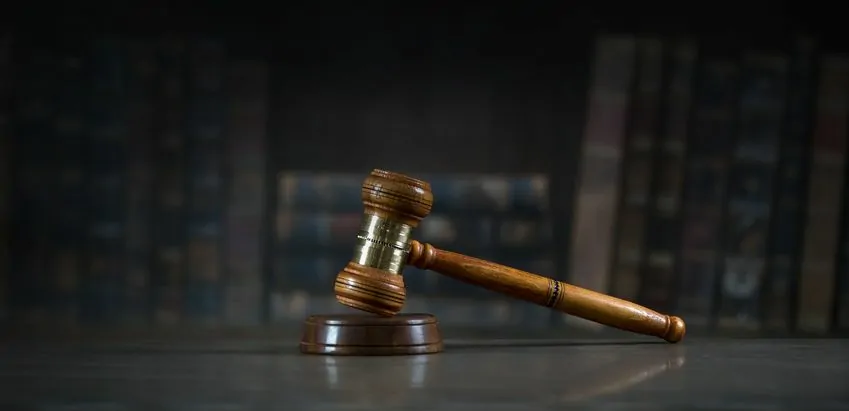Lord Denning was a unique personality who left an indelible mark on English law; but there was more than one side to his character, says Geoffrey Bindman QC
An obvious feature of aging is the disappearance of people who were once prominent in one’s daily life. Lord Denning is still known to today’s law students because of his groundbreaking rulings—such as Central London Property Trust Ltd v High Trees House Ltd [1947] KB 130, [1956] 1 All ER 256, which gave deserted wives the right to remain in the matrimonial home. But his unique personality is a fading memory.
He was a vivid presence for me during most of my career—especially during the period of over 20 years until 1983 when he led the Court of Appeal as Master of the Rolls. I was a solicitor in London for the whole of that time, and several of my cases reached his court. Born in 1899, he lived on, writing books, until shortly after his 100th birthday.
Humble beginnings
His origins were modest. His father had a draper’s shop in Whitchurch, Hampshire. Two of his brothers were killed in the First World War; another became a general, and another an admiral. Young Tom won a scholarship to Oxford, where he gained first class degrees in mathematics and then law. His personality was idiosyncratic. He preserved—doubtless deliberately—a broad rural accent throughout his life. He wrote and spoke volubly, but in short sentences which were often parodied. He revered clarity and simplicity. His knowledge of literature (especially Shakespeare) and English history was encyclopaedic. Like many judges he had a strong sense of his own importance, but he was always charming and cheerful and notably kind to litigants and witnesses.
He was direct and forceful in pursuit of justice. In that cause, he did not hesitate to bypass precedent and the established law. Yet at times his judgement was clouded by prejudice. His indiscretions seriously damaged his reputation in later life. His iconoclasm did not endear him to conventional judges, especially in the House of Lords, where he was frequently overruled.
Two cases illustrate the two sides of his character.
The justice of the case
The first was a skirmish in the battle between the late billionaire Sir James Goldsmith and my client Private Eye in the mid-1970s. Goldsmith claimed he had been libelled. In a novel manoeuvre, he sued simultaneously a range of wholesalers and distributors in addition to the publishers, editor, and author, issuing over 60 separate writs. The normal indemnities had been given to all those who sold the paper.
Goldsmith knew the Eye would be faced with ruinous costs if all these actions proceeded. His object was to put them out of business.
We persuaded a judge to strike out all but the three main actions as an abuse of process. Goldsmith appealed. Denning went straight to the heart of the matter, upholding the decision in a resounding judgment. Our elation was short-lived. His two colleagues immediately outvoted him. They typified the difference between Denning and so many of his colleagues. Denning decided according to the justice of the case. The others stuck to the letter of the law.
Open disparagement
The case of the Sikh schoolboy (Mandla v Dowell-Lee [1982] UKHL 7, [1983] 1 All ER 1062) came before Denning in his last year as Master of the Rolls, 1983. Mr Mandla, a Birmingham solicitor, tried to enter his ten year-
old son at a private school. Mr Dowell-Lee was the headmaster. The Mandla males wore turbans, but Dowell-Lee said at school the boy must wear the regulation school cap. That was unacceptable to Mr Mandla who complained to the Commission for Racial Equality (CRE), for whom I acted. Was this discrimination in breach of the Race Relations Act? Obviously it was discrimination, but were Sikhs an ethnic group protected by the Act? We thought so, but lost in the County Court. Denning rejected our appeal, but Jews, he said, were protected. His reasoning I took to be anti-Semitic. As he gave his judgment, I got up from my seat in the front row of the court and walked out. I was angered by Denning’s open disparagement of the Act and the CRE. Once again Denning was reversed by the Lords—this time rightly.
Controversy & legacy
Racism disfigured Denning’s reputation on other occasions. At the age of 83, he published What Next in the Law. Two passages caused a public outcry. One claimed that immigrants might not be suitable for jury service. The other referred to a case in Bristol where, Denning claimed, black defendants had used their peremptory challenges to secure a black majority on the jury. Some of the Bristol jurors sued him. There was no defence to their claim. They did not want damages. The case was settled with an apology and the deletion of the offending passages. It prompted his resignation. In his later book The Closing Chapter, Denning tells the story candidly, expressing his deep regret, referring to the incident as his ‘Achilles heel’, but falls short of acknowledging his racial prejudice.
A few years later, at the age of 90, he was interviewed by A N Wilson for The Spectator. The subject turned to Europe. Leon Brittan, former Home Secretary, was a commissioner in Brussels. ‘He was no good,’ said Denning, who knew him when he practised at the Bar. ‘He was a German Jew, telling us what to do with our English law’ (Brittan’s family had in fact, like mine, come from Lithuania). This caused another furore. Denning, however, made a fulsome apology to Brittan and to the Jewish community in general.
Racism—including antisemitism—has deep and varied roots in British society, as we are constantly reminded. It should never be excused or condoned, but there are degrees of culpability. Tom Denning’s failings were at the lower end of the scale. They do not negate his outstanding achievements.
This article was first published on New Law Journal.
